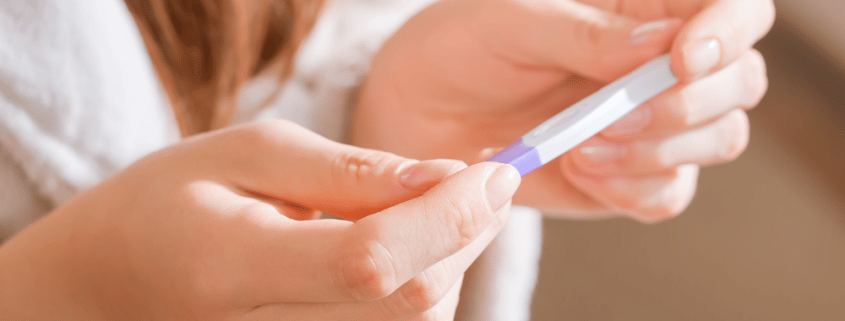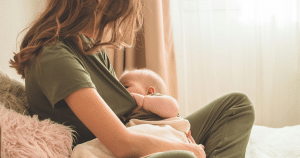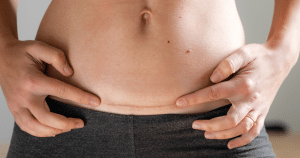6 early signs of pregnancy after giving birth
Congratulations on the birth of your little one! We hope you’re enjoying learning all there is to know about newborn parenting! Maybe you can’t wait to have another newborn on the way. In this article, we’re explaining the early signs of pregnancy after giving birth.
This article includes:
- Pregnancy hormonal changes
- What happens to the body after birth?
- How soon can you get pregnant after birth?
- Early signs of pregnancy after giving birth
- How do you know if you’re pregnant again after giving birth?
- Getting pregnant again soon after the first birth
Many parents love the idea of having lots of children close in age, and others prefer to wait a little longer. It’s completely up to you which you choose.
Pregnancy hormonal changes
When you first become pregnant, your body changes a lot. These changes continue for the next nine months and into postpartum too! These changes are generally caused by pregnancy hormones.
During pregnancy, your body creates new hormones, such as human chorionic gonadotropin (hCG). It also increases other hormones, such as estrogen and progesterone. These hormones and many others play huge roles during your pregnancy and beyond.
What happens to the body after birth?
After birth, the body works hard to regulate the hormones so that they return to pre-pregnancy levels. This then allows the body to get back into its typical cycle, which means triggering ovulation and periods.
The hormone prolactin works to suppress ovulation and tells the body when it’s time to ovulate again. While breastfeeding, prolactin levels are higher. This is why some breastfeeding women may not begin ovulating as soon after birth.
How soon can you get pregnant after birth?
You might remember having just given birth and being asked about your contraception plans. At the time, you probably thought, seriously? I’ve only just had the baby!
There’s a good reason why a healthcare provider might ask you about birth control methods. After giving birth, you could become pregnant again after just three weeks!
Some women use the Lactational Amenorrhea Method (LAM) to reduce the risk of pregnancy after birth. Find out more about can you get pregnant while breastfeeding.
For LAM to be effective, you have to follow strict criteria. Otherwise, you increase your chances of becoming pregnant. But, even then, it is not 100% effective at preventing pregnancy.
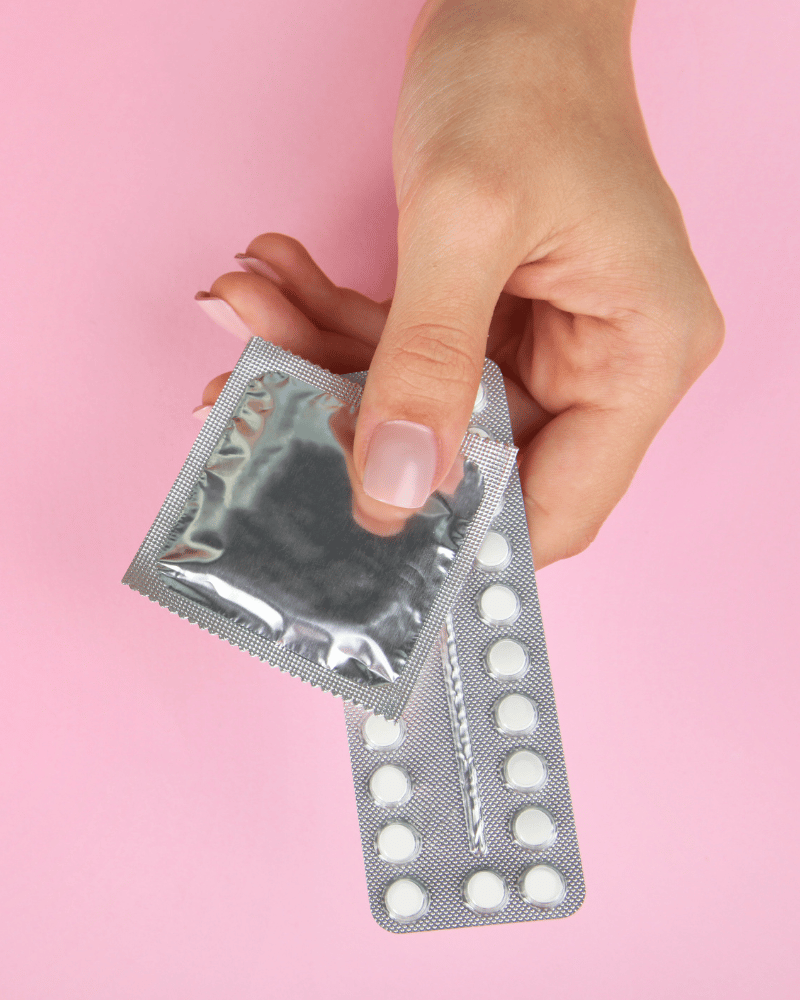
If you do not want to become pregnant, the advice is that you use birth control. Birth control methods are only as effective as they are promoted when used correctly.
With no birth control, you could become pregnant just three weeks after giving birth. There are times in your cycle when you may have a higher chance of becoming pregnant.
You should be aware that there is no way of knowing when to expect your first postpartum period. Your cycle may also have changed slightly after pregnancy and giving birth.
You might also wonder what the chances are of becoming pregnant on your period, and that all depends on your cycle. There are some ways that you can gain a better understanding of your cycle, including using ovulation tests. These tests measure the amount of Luteinizing hormone (LH) in your urine.
Early signs of pregnancy after giving birth
Have you been feeling a little off the last few weeks? Perhaps you’re frantically searching for signs of pregnancy during postpartum. We’re here to tell you the early symptoms of pregnancy.
Extreme tiredness
You’ll likely already be aware of how tired pregnancy can make you feel. Imagine that twice over, while your body is recovering, you’ve got a newborn baby, and your body’s working hard for pregnancy! It would be expected that you’d feel more tired than usual in these circumstances.
Missed period
Depending on how long it has been since you gave birth, this one can be tricky to spot. After giving birth, you can expect to experience lochia. This is post-birth bleeding that usually starts heavy and can get lighter. You may find the blood begins bright red and ends up being brown in colour.
Lochia can last for up to three weeks and shouldn’t be mistaken for a first period. You should seek medical advice if you notice large blood clots.
Your cycle can be slightly different after you’ve given birth. You may find that you bleed for longer or less time, or your cycle length may have changed. There are still ways that you can track your cycle so you can gain a better understanding.
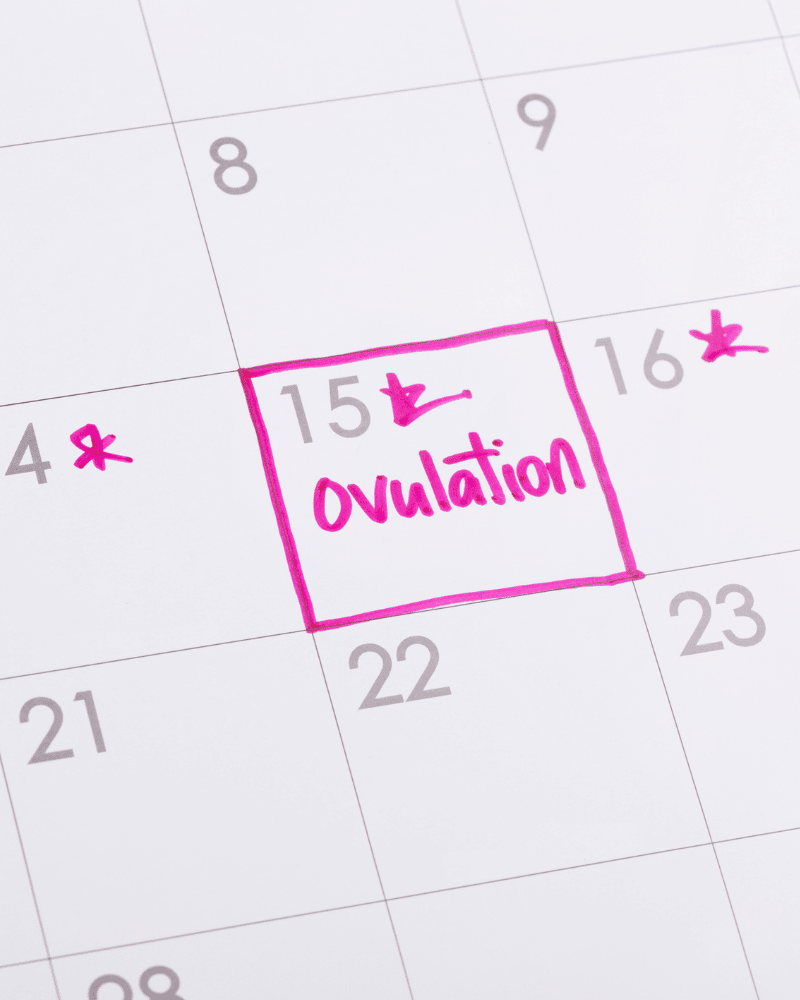
Breast pain
Having breast tenderness due to pregnancy can be overlooked when you’re breastfeeding. Many women find that their breast milk supply changes. This is likely due to the hormones in your body fluctuating.
Breastfeeding shouldn’t be painful, but you may initially feel slight discomfort. During pregnancy, many women find their breasts are more sensitive and may feel tender to touch.
Morning sickness
Many women experience morning sickness as a sign of early pregnancy. They may not actually be sick, but the feeling is enough to cause a problem. Morning sickness can be tricky to deal with when you are trying to care for a newborn baby.
Many women find it easier to spot this as a sign of pregnancy as it is different to typical postpartum feelings caused by the first pregnancy.
Increased urination
After giving birth, your organs must de-stretch and return to their pre-pregnancy size. Also bear in mind that your bladder has had extra weight on it during pregnancy, which is why you need the toilet more.
This means it’s quite likely that you’d experience increased urination again during a second pregnancy soon after the first.
Mood swings
It’s no lie that as a pregnant person, your body is going through a lot. Never mind when you’re pregnant with a second baby! It can be normal to feel overwhelmed after giving birth. You should make sure that you discuss your feelings. You may experience some signs of a hormone imbalance.
Your pregnancy symptoms may be the same both times round, or they may be totally different. There’s no way of knowing until it happens!
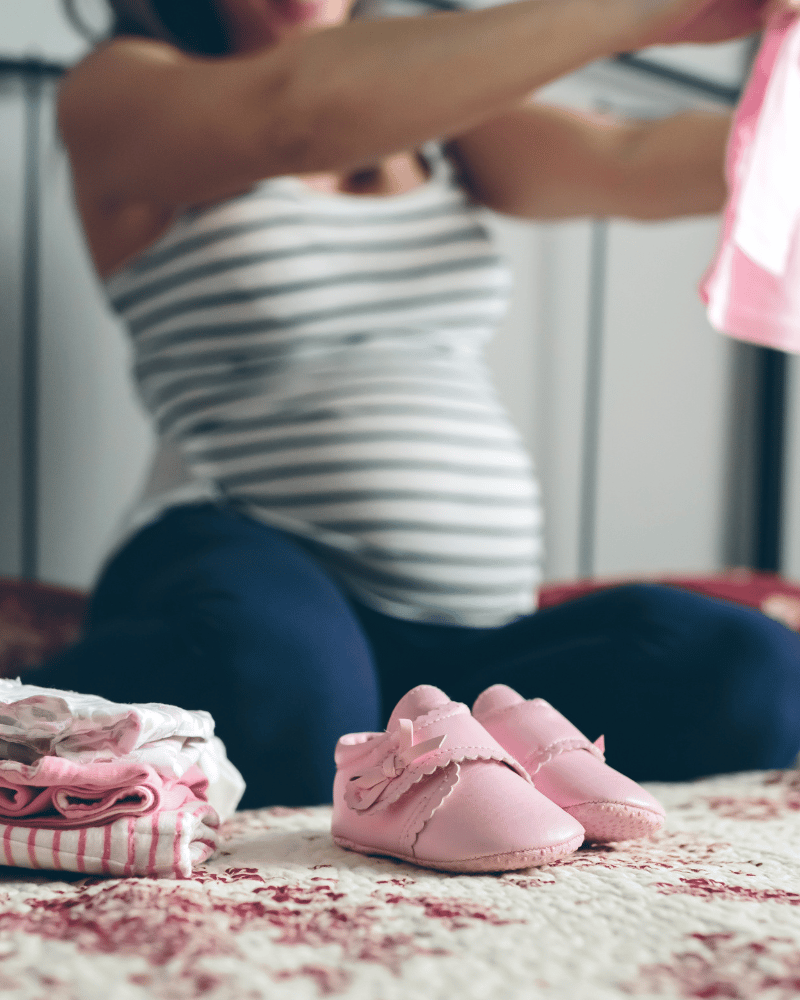
How do you know if you’re pregnant again after giving birth?
You may have your suspicions due to experiencing various pregnancy symptoms. The only way you can know for certain is by taking a home pregnancy test. You can buy pregnancy tests from many shops or pharmacies.
The tests are generally easy to use. You must read the instructions for each test as they can differ. They may include instructions on the right time to take the test, such as after a missed period. Alternatively, it may say to take the test a certain amount of days after having unprotected sex.
Getting pregnant again soon after the first birth
The general advice for getting pregnant again is to wait 12 – 18 months. There are no rules on this, it’s about what works best for you and your family. In some instances, it can be much safer.
It can also depend on your birth type, such as a vaginal birth or c-section. For example, those who have c-section births are advised to wait at least one year so that the scar has time to heal. A c-section is a major surgery and requires time to heal correctly.
Other advice stems from your ability to conceive for the next pregnancy. Many couples find it easier to conceive when both partners are healthy. This can mean that it’s best to wait a while for your body to recover from the first pregnancy and birth.
There are several things you can do to try and promote a healthy pregnancy for your new baby. These include:
- Eat plenty of healthy foods and commit to a balanced diet
- Drink plenty of water
- Get enough rest
- Exercise (when safe to do so)
- Take vitamins
- Take good care of yourself
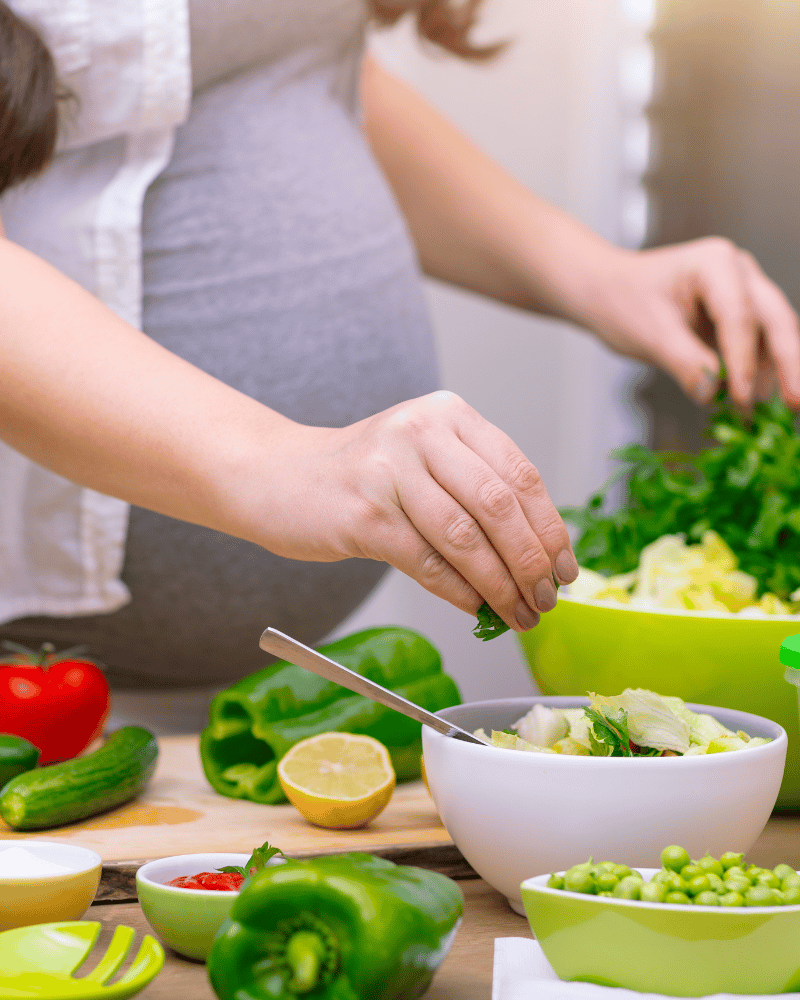
Most women are advised to start taking folic acid before getting pregnant. This can reduce the risks of some defects. Many women only take this up to the 12-week mark, when it can have the most impact.
If you’re unsure about prenatal care and which vitamins to take, you can always read up online and ask a doctor. They can offer you more personal advice depending on what you need.
We hope this article has been useful on the early signs of pregnancy after giving birth. Good luck with the rest of your journey!
Hey there, I’m Abigail!
In 2022, I graduated with a First Class Degree in Marketing and since then, I have been working as a blogger and Marketing Assistant. Before heading to university, I also achieved a BTEC in Children’s Play, Learning and Development.
I have been blogging for over four years and have covered many topics during this time. My focus has been on pregnancy, babies, sleep and baby name ideas.
I am passionate about learning new things and helping others. I hope that you find my blogs useful and informative. See you in the next article!



